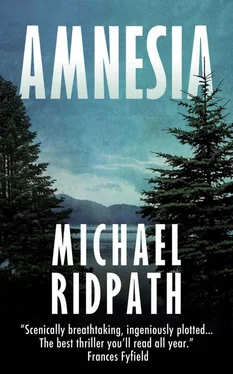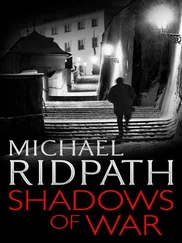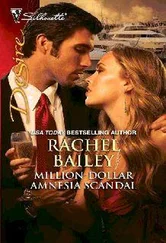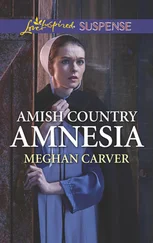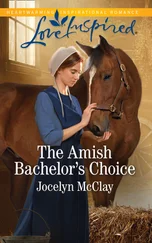It was a sunny day and warm, but as we emerged from the wood the beauty of the wide open moor before us injected us both with a burst of energy, and we made rapid progress. Loch Glass opened up beneath us, and the dramatic rocky face of Meall Mòr opposite. The moorland was not the plain smooth lawn of heather it appeared from below, but a series of tussocks, peat bogs, hollows and hillocks, criss-crossed by burns and gullies. Grasses, bog-myrtle, cloudberries, thyme, dwarf birch and juniper battled with the heather for space. The contrasting scents of baked earth, sweet heather and boggy roots jostled our nostrils.
‘I’ve never been to Scotland before,’ said Sophie. ‘It’s magnificent. Stephen came up here once with the boys to go stalking with his father just after his father inherited the estate, but I took Beatrice to France to see my parents. We should have come too.’
‘How old are they now?’ Angus asked.
‘Fabrice is sixteen, Beatrice is fourteen and Rupert’s eleven. And they hate the idea of coming back to England.’
‘Why is that?’
‘They all go to English boarding schools. Stephen insists on that, even though we can’t really afford them any more. But they love the vacations in California. They’ve got masses of friends, and kids in America have so much more fun than English kids. Fabrice’s girlfriend drives a T-bird. I suspect that won’t happen back here.’
‘No. A Vespa maybe,’ I admitted. ‘Bicycle more likely. What about you? How do you feel about it?’
‘We have to leave. Stephen needs to get away from Hollywood. He drinks too much, he takes too many drugs, these days everyone thinks he’s a washed-up has-been. I’m hoping if he comes back to England he can start afresh. Frankly, we are running out of money, so there isn’t much choice. I thought I might try teaching French at a school somewhere.’
‘You’d be good at that,’ I said. ‘Your English is perfect.’
‘I’d like to teach. But let’s not talk about Stephen. It’s rather nice being up here away from him.’
We continued up a steep incline to the crag of Fiaclach, and followed a long ridge which led up to the summit of Ben Wyvis itself. The sunshine, the views, the air and Sophie instilled a profound sense of euphoria in me. I was happy; I was truly happy.
The ground was flat enough for Sophie to stride along next to me. She was smiling too. She caught my eye and held my hand.
After four hours of hard work, we reached the summit of Ben Wyvis, which the map said was actually 3,400 feet high. This high up, the heather had given way to a soft matting of a kind of woolly moss. Below us to the north was Loch Glass and Wyvis Lodge. To the east was the Cromarty Firth and the Black Isle, with Inverness in the distance. And to the west were mountains, fifty miles of Scottish mountains. Much closer by, below the southern slopes of Ben Wyvis, lay the village of Garve and the road to Ullapool. Exhausted, we sat on some rocks and broke out our lunch. Despite the sunshine, it was pleasantly cool this far up, especially once our heart rates had slowed.
We were hungry, and the roast beef sandwiches tasted really good.
‘I don’t know what to do about Alden,’ Sophie said.
‘We don’t have a choice.’
‘We do have a choice, it’s just a difficult one.’
I munched my sandwich. ‘Lies are like that, aren’t they?’
‘What do you mean?’
‘Well, you tell one, and that works out fine. But then you have to tell another and another, and pretty soon you have committed yourself to lying for the rest of your life.’
‘That’s precisely it!’ said Sophie. ‘That’s what I don’t want to do.’
‘I fear you’ve done it already,’ I said. ‘We all have.’
Sophie didn’t answer.
‘Can I confess something to you?’ I said. ‘You’re a Catholic, you understand confession.’
‘I’m not a priest,’ said Sophie.
‘No,’ I said. ‘But I have to tell someone. And telling you way up here seems safe.’
‘What is it? I’m intrigued.’
‘ Trail of the Scorpion isn’t strictly true,’ I said. ‘In one important respect. That’s why I called it a novel.’
‘Leaving Corporal Binns in the desert?’
‘Yes.’ I stared out over the far mountains. ‘He couldn’t walk any more. So we tried to carry him.’
‘That’s in the book.’
‘Yes. But I say we both tried. The truth is Sergeant Gill gave up after half a mile. He said Binns was too heavy, we were going too slowly, we would soon get tired and all three of us collapse. I said we had to carry Binns. So I tried to carry him by myself.’
‘Could you?’
‘Not really.’
‘And what did Sergeant Gill do?’
‘He went on ahead. And it was true, of course, he was much faster.’
‘So what did you do?’
I took a swig of ginger beer from a bottle. ‘I carried on. Until Gill was almost out of sight.’ I paused. ‘Then I lost my nerve. I shouted to him to wait. And I hurried after him.’
‘Leaving Corporal Binns alone?’
I nodded. ‘I made him comfortable against some rocks, so he would be visible from a distance if anyone came that way.’
‘Did he say anything?’
‘He said: “Please stay, sir. Don’t leave me.” He could barely speak.’
‘And you left him anyway?’
I winced. ‘When the LRDG patrol picked us up, I tried to persuade them to drive off and look for him, but they wouldn’t. They had their own mission. He was never found, as far as I know. Missing, presumed dead.’
‘But in your book, you say that you and Gill agreed what to do?’
‘That’s right. And that’s what I reported back when we reached headquarters. But it was a lie. When I wrote the manuscript, I described things as they really happened, but I decided to show it to Gill. I thought it was all very well for me to make public what I had done, but I would be ruining his reputation as well.’
‘And he didn’t like it?’
‘Not one bit. He works as a foreman in a textile factory in Leeds now. He wanted me not to publish anything, but I refused to do that. So we compromised on the story that you have read. And I called it a novel.’
Sophie reached out and grasped my hand. ‘I’m glad you did leave the poor man,’ she said. ‘Otherwise you wouldn’t be here.’
‘No,’ I said. ‘I know I made the right decision. Gill was right — we would never have made it to the patrol if we had both carried him.’
‘At least you tried,’ said Sophie.
‘I tried.’ I took another swig of ginger beer. ‘But I think my urge to tell people what happened, even if it isn’t quite the truth, came from what we did after Alden’s death. I will always feel guilty about that: it was my idea.’
‘Me too,’ said Sophie.
I needed to explain more. I wanted to explain more.
‘At first I thought that the pleasure I felt writing the memoir was the joy of the creative process or some such thing. And writing the book while I had been a medical student at Bart’s brought me a lot of pleasure. Except it wasn’t really pleasure, it was comfort. It was peace.
‘I’ve always thought of myself as a strong character, someone able to deal with disturbing events and not let them damage me. But I had been dishonest about the deaths of two people, Alden and then Corporal Binns, and my dishonesty was something I denied to myself. I didn’t erase it, but I locked it up in a cupboard in the corner of my mind where it couldn’t get at me. It was still there, though, creating a tension, an anxiety that was always bubbling in the background. I learned to live with it to the point that I almost didn’t notice it.
‘So when I wrote Trail of the Scorpion , it was as if I were taking these difficult decisions I had made, possibly mistaken decisions, out of that cupboard in the corner and examining them. And in doing so I was learning to live with them; for moments, while I was writing, I felt at peace with them. Does that make any sense?’
Читать дальше
